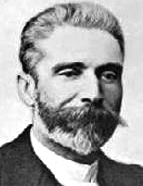

The priority he attached to safeguarding the revolution and its most immediate consequence – the implementation of a republican regime – led Teles to contradict the position taken by the moderate wings of the republican movement (that represented by Manuel de Arriaga, for example), which proposed a republic that was open to all, and to say that only true republicans would be capable of defending the regime. He felt that participation by (converted) monarchists would only help taint and corrupt it (Memórias Políticas...., 126). This gives us a better understanding of the position he took and explained in I - As ditaduras, II - O regime revolucionário (I – Dictatorships, II The revolutionary regime, 1911), in which he argued for the adoption of an authoritarian solution – a “dictatorship by consent” – that would ensure the transition (by implementing a set of revolutionary decrees) between the monarchy and a radical democratic republic based on the popular will. Predicting the problems of the post-revolutionary period and determined to preclude the unforeseen and guarantee stable governance, Teles chose to save the Republic to the detriment of the (democratic) programme (Leal, 2008, 16-17).
In addition to the political question and to that of replacing the regime, when looking at Teles’ thoughts on this subject we should also note the importance he attached to the economic factor in Portuguese history, in that “these two analytical paths” supported one another “in such a way as to clarify the causes of the country’s problems” (Almodóvar, “O pensamento económico...” [Economic thinking], 2007, p. 63).
In Teles’ opinion the crisis was also explained by the fact that Portugal had pursued a commercial economic policy that was not very suited to the country’s characteristics; he felt that this meant that overcoming it entailed a development based on a physiocratic ideal in which agriculture was seen as the best way to produce wealth that would in turn free the country from dependence on foreigners. At the same time Teles advocated the creation of a state that would weigh up and regulate social justice along the lines of a “lectern socialism” (Kathedersozialismus) and would be “the inspiring soul and vigilant will of tomorrow’s Portugal” (O problema agrícola..., p. 259). He believed that although the Portuguese were precluded from playing a leading (or hegemonic) role in Europe’s future, they could perform the mission of being transmitters of civilisation to the more backward peoples of the world. Even though communicating and disseminating were modest functions, they would give Portugal the right to its own place in the moral confederation composed of the peoples of Europe (Do Ultimatum..., pp. 162 and 36.).
